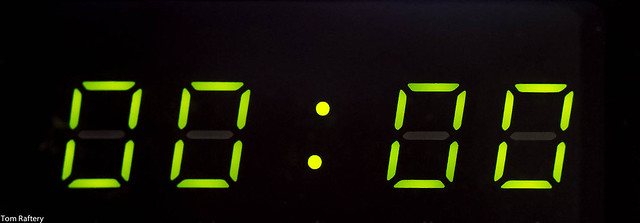
And here is a round-up of this week’s Green numbers…
-
UN agency offers $10,000 cash for green phone application
The United Nations telecommunications agency has launched a contest that will reward the winner with $10,000 for devising the most innovative ?app,? or mobile telephone application, that tackles the subject of climate change.
ITU has launched a Green ICT Application Challenge to find the best and most innovative idea for a climate change focused app. The winning concept will be awarded USD10,000, thanks to challenge sponsors Research in Motion (RIM) and Telef?nica.
As well as the cash prize, the winner will… Read on
-
Unsure about nuclear power? Here’s the five questions you must answer to decide
Containing the elemental forces that rage inside a nuclear reactor is one of the great achievements of science, but losing control, as happened 25 years ago on Tuesday at Chernobyl, is one of its greatest failures.
So what to think of nuclear power? People often ask me if I support or oppose the building of new nuclear power stations, presuming I think that … Read on
-
Feds: Global warming will cut West’s water 8-14% by 2050
Even as California seemed to be shaking off the effects of its most recent drought, U.S. officials gave a word of warning Monday: water supplies could drop sharply in coming decades because of global warming.
A new report from the Bureau of Reclamation says runoff to major western river basins, including the San Joaquin and Colorado that supply California, could drop 8 to 14 percent overall by 2050.
And while the agency’s projections show that another California water source, the Sacramento River, could see a… Read on
-
A Battery That Charges in Seconds
Imagine being able to charge your cell phone in a matter of seconds or your laptop in a few minutes. That might soon be possible, thanks to a new kind of nanostructured battery electrode developed by scientists at the University of Illinois, Urbana-Champaign. The researchers found that their electrode can charge and discharge up to 100 times faster than existing devices while holding the same amount of energy.
High-storage batteries that could charge and discharge quickly might make a number of still-marginal technologies much more attractive. For example, if you could recharge an electric car in minutes rather than hours, filling up your battery at a charging station would take no longer than the amount of time it takes to buy a tank of gas. And batteries that gave up their stored energy quickly could mean uninterrupted solar power… Read on
-
Legalizing Marijuana Could Reduce Its Energy Consumption 75%
When we found out a couple week ago that the marijuana industry is responsible for 1% of all US electricity consumption, the first and perhaps obvious big question that popped to my mind was how would that figure change if pot was legalized? Surely the electricity bill is so high in part because of the necessity of indoor grow operations to avoid detection.
Well, as the infographic excerpted below shows, legalization of pot would indeed radically slash the energy footprint of the marijuana industry… Read on
-
The United States consumes 19 million barrels of oil a day, 25 percent of the global supply, but we have less than 2 percent of the world?s proved oil reserves. That means no amount of domestic drilling will reduce gas prices or provide enough to meet America?s daily demand for oil. The only solution: develop better cars and cleaner, safer sources of fuel. By 2025… Read on
-
The NRC’s “safety-last” attitude recalls the industry-friendly approach to regulation that resulted in the BP disaster in the Gulf of Mexico last year. Nuclear reactors were built to last only 40 years, but the NRC has repeatedly greenlighted industry requests to keep the aging nukes running for another two decades: Of the 63 applications the NRC has received for license extensions, it has approved all 63.
In some cases, according to the agency’s own Office of the Inspector General, NRC inspectors failed to verify the authenticity of safety information submitted by the industry, opting to simply cut and paste sections of the applications into their own safety reviews. That’s particularly frightening given that some of America’s most troubled reactors… Read on
-
Google?s Clean Energy Projects (7 Big Ones)
Google is one of the largest clean energy corporate leaders in the U.S. If we had more Googles (and fewer Facebooks or Apples), it looks like we?d have a much brighter future. Hopefully, others will follow Google?s lead sooner than later on this front, or even try to one-up it. For now, though, it?s clean energy enthusiasm and investments are hard to compete with.
With a number of recent clean energy project announcements… Read on
-
UK Electric car scheme has only 534 takers
The government’s hoped-for electric car revolution, jump-started by a ?5,000 purchase grant per vehicle, is getting off to a slow start with just over 500 people signing up to the scheme since it was introduced at the start of the year.
The figures, revealed in a parliamentary answer by the junior transport minister Norman Baker, show that 534 electric vehicles were registered to the so-called plug-in car grant during the first quarter of 2011. So far, 213 have been delivered.
The incentive scheme… Read on
You should follow me on Twitter here
Photo credit Tom Raftery

